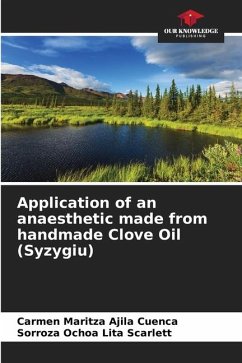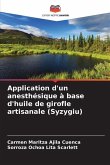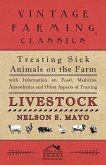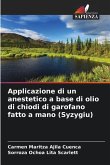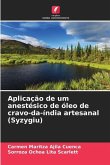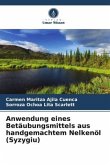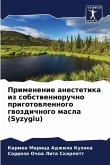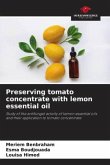Aquaculture is the production technique of aquatic organisms (fish, molluscs, crustaceans, algae, etc.) where different production techniques are used, each of which implies a modification of the natural habitat, exposing them to any change, which may affect their health status, decreasing their performance. The handling of fish is a very common practice in any farming system, but this activity can cause some stress in the animals, which means a weakening of their immune system, which can cause massive mortality, representing economic losses to the producer. To try to mitigate this impact, it is very common to use commercial anaesthetics (of natural or synthetic origin) that have a high commercial value. For this reason, alternatives are sought with materials available in the environment that do not represent a high value and are safe both for the organisms and for the person who applies them. For this reason, the present work aims to evaluate the application of different doses using an anaesthetic made from clove (Syzygium aromaticum) to reduce stress in fish.

